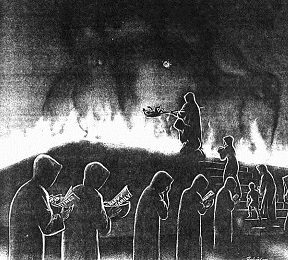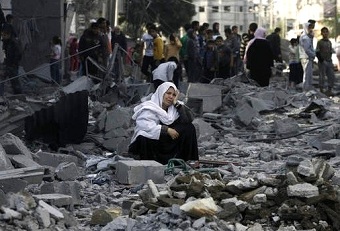Security Blanket: Western Democracy and the Strategy of Tension

Shoppers sprint through a department store on Saturday
as gunmen open fire in a shopping mall in Nairobi, Kenya.
This article is originally from 24 November 2008.
The idea that a democratic government would deliberately create fake "extremist groups" then send them out to foment violence and terrorism -- in order to discredit legitimate opposition to elite rule and to "justify" authoritarian powers -- has long been derided in "serious" circles as that worst of modern heresies: "conspiracy theory." Anyone advancing such a preposterous notion is instantly relegated to the ranks of the "lunatic fringe," and dismissed with varying degrees of contempt and condescension.
And the woeful fact that millions of the ruminants out there in the vast public herd swallow these wild tales and believe that their betters are up to no good is also widely deplored in the higher circles of public discourse. As any fully-accredited, perk-laden, sinecured think-tanker can tell you, democratic governments are led by men and women devoted to public service. Sure, there can be fierce disputes over policies and approaches and outcomes and ideologies and competence. Sure, some people may step over a line here and there in their pursuit of what they believe is the nation's best interests. But just as western democracies do not torture, do not launch aggressive wars, do not spy upon their own people or imprison them by the millions, they most assuredly do not create and support extremist groups and instigate acts of terror and chaos to advance authoritarian agendas.

































